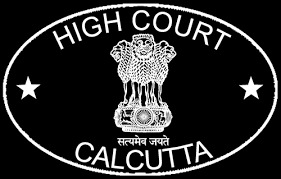Madhavan Nair, J.@mdashThis second Appeal is by the plaintiff in a suit for recovery of possession of properties, with past and future mesne profits, on the basis of title. The property was purchased in court sale in 1930 by the 4th defendant and taken delivery on 16-12-1931. On the allegation that the 4th defendant was only a benamidar for Abdulkhader Haji, plaintiff had taken an assignment of the property from the latter as per Ext. A3 dated 9-6-1943 and instituted this suit for. recovery of possession from the defendants. The 3rd defendant contended that the 4th defendant was the real purchaser at the court-sale and he has assigned his rights to the 2nd defendant as per Ext. B13, who assigned it to the 3rd defendant. The learned Munsiff repelled the contentions of the defendant and decreed the suit, finding that the 4th defendant was only a benamidar for Abdulkhader Haji. The learned Subordinate Judge, on appeal by the 3rd defendant, held that the plea of benami in court purchase is barred by Section 66 of the CPC and that the plaintiff or his predecessors-in-interest had no possession of the suit properties at any time within 12 years prior to the institution of the suit, and therefore dismissed the suit. Hence the Second Appeal.
2. It is strenuously contended by the Learned Counsel for the appellant that the appeal in the court below was on 15-12-1953 dismissed on merits, but was restored to file on 12-3-1954 on application under Order 41, Rule 19, C. P. C., that a restoration after disposal on merits was incompetent and that therefore the subsequent hearing and disposal of the appeal were beyond authority and void. It is however conceded that on 7-12-1953 when the appeal before the court below came up for hearing, the Learned Counsel for the appellant prayed for an adjournment, it was rejected, the appeal was at once taken for disposal; and on 15-12-1953 the court entered judgment purporting to be on the merits of the case.
3. The Learned Counsel for the appellant read to me the provisions of Order 41, Rule 17, C. P. C. to the effect:
Where on the day fixed or on any other day to which the hearing may be adjourned the appellant does not appear when the appeal is called on for hearing the court may make an order that the appeal is dismissed,
and contended that it was open to the appellate court, on non-appearance of the appellant, to dismiss the appeal either for default or on merits; and that, if the appellate court has in its discretion, disposed the appeal on merits a petition for its restoration would not lie. The Learned Counsel read the ruling reported in Daulat Singh v. Maharaja Kesho Prasad Singh (A. I. R. 1921 Patna 325) to convince me that the court exercising powers under Order 41, Rule 17 can dispose of the appeal either for default or on merits. The said Rule 17 only says that if the appellant does not appear when the appeal is called on for hearing the court may make an order that the appeal is dismissed. Such dismissal can only be without reference to the merits of the appeal. The Legislature cannot be expected to have presumed that all appeals, in which the appellant does not appear when appeal is called, would be without any substance and as such may be dismissed on merits. Order 41, Rule 17 C. P. C. therefore contemplates only dismissals for default; and if the disposal of the appeal be under that rule it will come within the purview of Order 41, Rule 19. The latter Rule reads:
Where an appeal is dismissed... under Rule 17...the appellant may apply to the appellate court for the readmission of the appeal.
No limitation, based on the manner of disposal of the appeal, be placed on the appellant moving an application under Order 41, Rule 19 if he was not heard on the appeal before it was disposed of. To entitle restoration of the appeal he need only convince the court that there was sufficient cause for his non-appearance when the appeal was called on for hearing. He need not show further that the court has not adverted to the merits of the appeal in its ex parte judgment. It follows therefore that, whatever be the manner of dismissal of the appeal, if it was under Order 41, Rule 17, it cannot be said that an application for restoration is incompetent or that the appellate court has no jurisdiction to re-admit the appeal. The contention is therefore over-ruled.
4. The Learned Counsel for the appellant then contended that the lower appellate court erred in its appreciation of the evidence in this case, and that, if the evidence was correctly weighed, possession would necessarily be found with the plaintiff. I am afraid that this contention is beyond my competence to entertain. The lower appellate court has, in very clear terms, found that the plaintiffs and their predecessors-in-title had no possession of the suit properties for more than 12 years prior to the institution of the suit. This finding was rendered on 21-9-1954, when the matter was governed by the CPC of India. Under Sections 100 and 101 of that Code the finding on a pure question of fact by the first appellate court was final and was not open to challenge in Second Appeal. The provisions of Section 101 C. P. C. are imperative. It was further contended that, though the right of appeal may be a substantive right, the right to urge particular grounds in an appeal is a procedural right and as such the latter right would be governed by the law in force at the time of hearing the appeal, and that since Section 100 of the CPC has been amended in its application to the Kerala Stale to cover within the scope of Second Appeals pure questions of fact divergently found by the courts below, he is entitled to a determination by this High Court on. the questions of fact arising in this case. This argument also does not appeal to me. If on the day the decision was given by the first appellate court it was final, that finality became a vested right of the person entitled to the benefit of it and cannot normally be affected by any subsequent change in the law. The Learned Counsel for the respondents urged that the right of appeal is governed by the law on the date of the institution of the suit; and if we go by that proposition on the date of the institution of this suit the plaintiff had no right of a Second Appeal on a question of fact.
5. But a right of appeal has to be distinguished from a right to a final determination in the matter. The former is governed by the law on the date of the institution of suit; but the latter by the law on the date when the decision is given. In
While provisions of a statute dealing merely with matters of procedure may properly, unless that construction be textually inadmissible, have retrospective effect attributed to them, provisions which touch a right in existence at the passing of the statute are not to be applied retrospectively in the absence of express enactment or necessary intendment. Their Lordships can have no doubt that provisions which, if applied retrospectively, would deprive of their existing finality orders which, when the statute came into force, were final, are provisions which touch existing rights. Accordingly, if the section now in question is to apply to orders final at the date when it came into force, it must be clearly so provided. Their Lordships cannot find in the section even an indication to that effect.
6. In the light of the above dictum, it must be held that, if the finding of fact by the lower appellate court was final when the decision was given, it cannot lose its finality by the subsequent amendment of the law on the matter. Hence the transfer of the appeal, at the reorganization of the States in 1956, from the High Court of Madras to the High Court of Kerala and the subsequent amendment of the CPC by the State Legislature of Kerala to include questions of fact found differently by the court of first instance and the first appellate court within the scope of Second Appeals cannot affect the finality attached to the decision on facts made in 1954. There is no provision in the Act amending the CPC (Kerala Act) XIII of 1957) depriving then existing decisions of their finality or extending the operation of the Act to all pending Second Appeals.
7. As to the effect of Section 100 of the Indian Code of Civil Procedure, the Supreme Court has observed in Pattabhiramaswamy v. Hanymayya (A. I. R- 1959 S. C 57) thus:
The provisions of Section 100 are clear and unambiguous. As early as 1891, the Judicial Committee in Durga Chowdhrani v. Jawahir Singh (17 I. A. 122 P. C.) stated thus:
There is no jurisdiction to entertain a second appeal on the ground of erroneous finding of fact, however gross the error may seem to be.
...Nor does the fact that the finding of the first appellate court is based upon some documentary evidence make it any the less a finding of fact. (See
8. The question of actual possession of the property being one of pure fact and that having been found clearly against the plaintiffs by the first appellate court, I do not feel competent in this Second Appeal to canvass its correctness on an independent assessment of the evidence in this case. It is conceded that, if that finding of fact is not to be disturbed in this Second Appeal, the plaintiff cannot establish a subsisting title to the suit properties and the decree of the court below has only to be accepted. The Second Appeal therefore fails. It is dismissed with costs.

